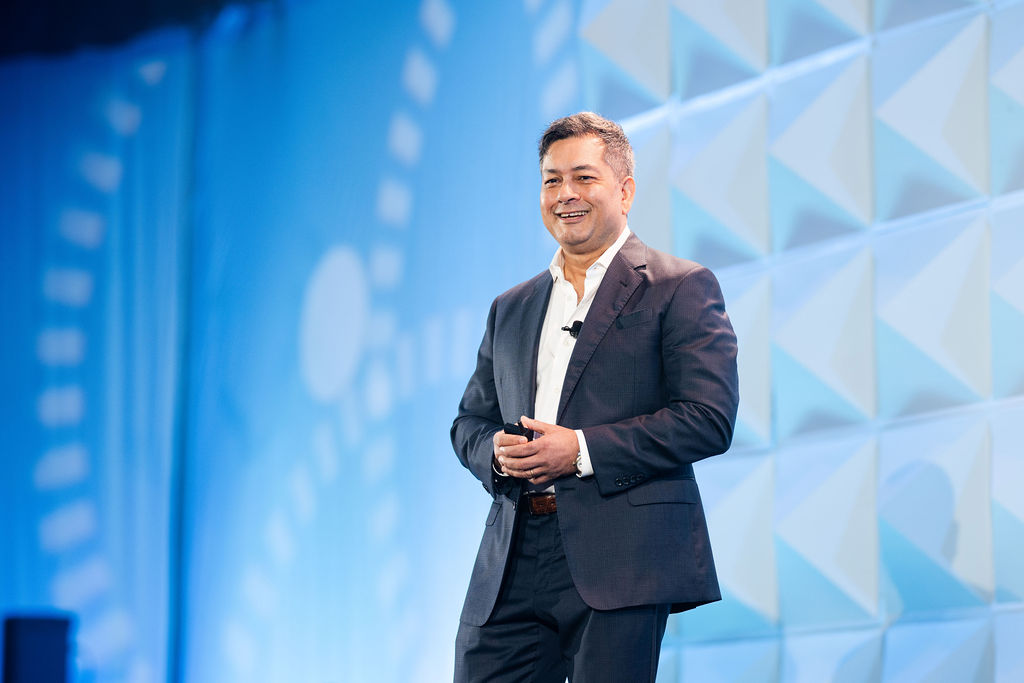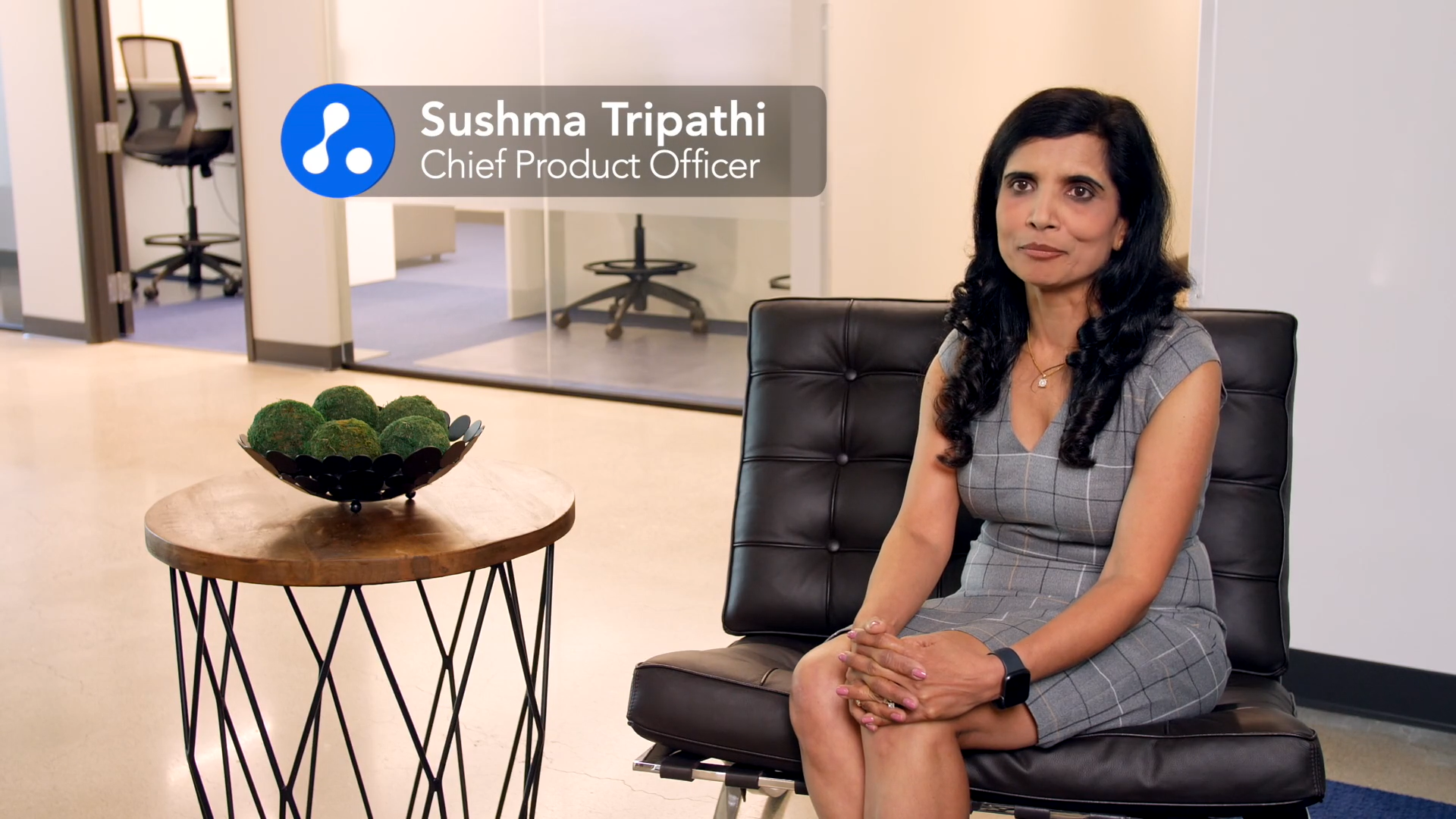Avionté, a recognized leader in staffing technology, has recently unveiled its groundbreaking vision with the launch of a complete, end-to-end staffing platform. This innovative strategy began with the acquisition of WorkN’s mobile talent solution, seamlessly integrating the company’s robust ATS with a comprehensive mobile talent app. With the addition of SimpleVMS in 2023, Avionté has solidified its position by establishing a seamless integration from VMS to ATS and mobile, digitizing the entire workflow to support the whole staffing ecosystem – from employers to agencies to talent, and back.
But platform staffing isn’t new, and its adoption has sparked controversy within the industry. Early “talent platforms” faced criticism for their perceived lack of quality and service, often bypassing staffing agencies. Avionté, however, takes a different approach, marrying the high scalability of talent platforms with the human touch of traditional models, effectively placing the recruiter at the center of its platform.
Join Dan Mori, Managing Partner of the National Independent Staffing Association (NISA) and Staffing Mastery, as he sits down with Avionté CEO Rishabh Mehrotra to explore how the company is pioneering platform staffing while upholding quality, compliance, and value – and why this approach is poised to revolutionize the industry!
This is a partial transcript of the full conversation. Listen to the podcast episode for the complete discussion.
Dan Mori: So, there’s been a lot of buzz in the news lately about staffing platforms. Staffing industry analysts have recently stated that platform staffing is growing at a remarkable fifty eight percent per year, which significantly outpaces traditional staffing firms.
But for people who have been around long enough, we recognize the word platform as a controversial word. I witnessed the introduction of several of these so-called talent platforms into the marketplace. And the results weren’t pretty. They could certainly deliver volume, but the quality and the service were lacking. They failed to understand what users of these platforms really wanted, and that’s quality employees.
So, when looking at some of the big news out there today with Avionté, who is one of the leading providers of staffing software in the industry – they are choosing to make platform staffing a core strategy for the future of their business. And I’m curious, why is that? And what sets their vision apart from the past attempts to build out a platform that didn’t go so well?
To find out, I’m going to speak with Avionté CEO, Rishabh Mehrotra, to learn more about Avionté’s distinctive vision for the future of staffing.
Now Avionté, one of the two largest players in the staffing industry, has been really busy. First, they launched their mobile talent platform. This was an absolute game changer, allowing talent to apply, onboard, track time, get paid, all from their mobile phone.
And in Q3 last year, they announced their merger with SimpleVMS, which was controversial for sure. But SimpleVMS is actually one of the most satisfying VMSs in North America, meaning staffing agencies really enjoy working with them, and they’re tailored for high volume staffing. This is the first merger of an ATS and a VMS in North America.
And even more recently, Avionté began publishing new thought leadership focused on an end-to-end platform staffing, which I thought was a curious term because we’ve talked about ATS forever, and then it was the tech stack, and now it’s evolving into the platform.
But if you think about the platform they’re building, they’re promising to better connect employers, staffing agencies, and talent on a single platform. And there’s becoming a lot of buzz around this. But no news was more noteworthy than what came out last week when Express, which is the fifth largest staffing organization in the world, made the public announcement that they are moving their staffing technology operations to the Avionté platform.
So, they’re seeing that platform staffing is the way of the future. And seeing all of this fast action really made me wonder: what is going on at Avionté? Is this news of Express affirmation of what they’re building, and is it a harbinger for what’s to come in the staffing industry?
It is my honor to welcome Rishabh Mehrotra, CEO of Avionté, to the Avionté Digital Edge program to talk about platform staffing and his vision for Avionté, and what they are doing for the industry.
So, Rishabh, could you tell me just a little bit about yourself?
Rishabh Mehrotra: Quick background about myself. I’ve been at Avionté a little over three years now. And, very excited that we’ve had a chance to both transform Avionté, but also working with our customers to help transform their journey — and now moving towards platform staffing. My background has been in software and HR tech software throughout my career. One of the first companies I founded was the first portal software company trying to provide work life balance for people in the workplace.
I’ve subsequently built a leading FSA/HSA platform that’s now part of ADP, and then built one of the largest payroll providers in Asia for a company called Ascender that’s now part of Ceridian.
But one common thread is that I always believed that technology is a means to an end to help simplify and improve people’s lives. And that’s a common thread I’ve held here at Avionté as we think about the lives of recruiters, talent, or even employers. How do we simplify their lives using technology? I think, today, contingent labor is one of the most exciting places to be in in the labor marketplace. And it’s a privilege for us at Avionté to play in the space.
Dan Mori: I agree with that. And I’m grateful for your time because I always view you as one of the industry’s great visionaries. I want to talk about this announcement, Rishabh. You architected a staffing platform that caught the attention of one of the major players in the staffing industry, not just in the United States, but globally.
Is this new partnership a signal that platform staffing is the new technology standard that staffing and recruiting agencies should build their business on?
Rishabh Mehrotra: First, I want to say that we’re really honored to work with Express. They’re a leading global provider. They’re also thought leaders in this industry, and we’re privileged to be working with them.
The short answer to your question is absolutely. I think this is a game changer in the industry. Let’s talk about why. I’ll start with a little story. When I was at ASA last year, one of the senior folks said, “Staffing has always been about 2-3% of the labor workforce, and that’s been the case for thirty years.” So, the question that I had is why? The gig workforce has grown significantly over the last decade and is expected to get to about 30% of the labor force.
If you look at it from an employer standpoint, having variable labor cost is better than having fixed labor cost. So, if you think about it from an employer standpoint – who are the end clients for all of our staffing customer agencies – they want to hire someone. Our role in this industry, whether we’re providing technology or a staffing company, is to help put people to work. And the more reliably we can put them to work, the more quality that we can provide there, the better it is for the end customer.
So, if we’re able to do that, the staffing industry can capture a greater part of that contingent labor workforce. But if we’re focused just transactionally, we are not able to provide that reliable supply chain of labor. So, I think the first thing is there’s market dynamics that create a need to have a reliable supply chain of labor. I want to be able to get people when I want them. I want high-quality people, and I want them to be able to show up to work.
What we started thinking about when we did the acquisition of WorkN was that, ultimately, staffing is a two-sided marketplace. We’ve got people that we put to work, and we got employers.
But on the people side, there’s a greater demand for labor than supply. And so, we came up with this concept of consumerization of staffing, and, hence, we acquired a mobile platform. In every other part of our lives where we are consumers, we use mobile, and we want to make sure that we have a consumer-worthy experience.
We’ve subsequently transformed it to where an employee can go from looking at a QR code, download an app, get interviewed by a bot, talk to a recruiter, digitally onboard, get on a shift, and get paid all in one place. And, the experience that we’ve had as consumers of having a singular, end- to-end journey is what’s required to keep us engaged, and talent is no different.
And if talent is engaged, they’ll keep coming back. And if they have difficulty in onboarding or difficulty in being able to get a job, then they’re just not going to go there because they have choices. So, it was important for us to create the mobile platform as a full part of the solution along with the ATS.
And then last year, as you mentioned, we acquired SimpleVMS because, ultimately, the employer side and getting a job into your ATS and to talent and automating that full workflow is going to be very important in terms of managing that supply chain of labor.
So, we can predict how many jobs are going to be coming in. We can automate that end-to-end interaction between employer and talent and reduce the time that it takes to fill a job, improve the probability of somebody showing up at work, and, hence, increasing the reliability of that supply chain of labor.
And if you think about it from an agency standpoint, the agency can fill more jobs faster, which means they’re going to get a greater share of wallet from employers. And they’re going to be able to do it more efficiently. And, ultimately, they’re going to be the winners.
The analogy that I use is if you’re at Disney and you’re in the Fast Track line, and somebody else is in the slow line, you’re going to get more rides. Agencies that deploy a platform are going to get more rides. That means they’re going to get a greater share of wallet, and they’re going to be more efficient in terms of how they spend their time, so they’re going to be more profitable. And that’s why I think this is a game changer in the industry, and we’re excited to be a part of it.
Dan Mori: I feel like for an industry that has not been typically described as being tech forward or tech progressive, this is a bit of a leapfrog, because there was the ATS, then the tech stack, and then the platform.
When I think of an ATS, I think of rudimentary software to get a job done, like a powerful Excel sheet. When I think of a tech stack, I think of Jenga. If you move a piece, it might disrupt everything else. But when I think of platform, I feel like that’s something different.
So, describe how you view an ATS versus the tech stack that seemed like it was the intermediary step to get us to the platform.
Rishabh Mehrotra: ATS is the foundational element. It’s your system of record. It allows you to drive all the different processes and interaction. And the ATS was a major game changer because it took it away from spreadsheets and allowed people to automate and get more efficient. The tech stack then allowed you to integrate these other elements into the ATS, such as background checks or tax credits.
When we go from there to platform, it takes it to the next level, which is around the human technology interaction. One of the things that we, in the staffing industry, assumed was that talent would come into offices, and then you got placed and you went somewhere. Now talent is also coming in on a mobile phone. And the minute the talent starts coming in as a consumer, the tech stack becomes defunct, because the consumer is not going to go to five different apps.
You’re not going to a different app to find a flight, book a ticket, pay, change your seat, and so on because you can do it in one place. A tech stack forces people to go to five different places. It’s still giving you automation, but it’s not giving you that human technology interaction. So, the platform gives you that human technology interaction, which improves ease of use. And when you improve ease of use, people will use it more.
The example of Uber is very clear. What have they done? They have, for one job, automated the ease of use from when the customer asks for a job to when the driver says, yes. I’m going to do it.
And so, platform staffing is no different. It’s taking the consumer, the person, and using technology to simplify the way they interact with technology.
Dan Mori: So, I agree with that. But I think one thing that was the downfall of early platforms in this industry is that they tried to Uberize it. And if you think about the magic of Uber, they just created a better communication tool to hail a cab. And then they created a marketplace for people that wanted some gig work.
And when people tried to apply that same model to the staffing industry early on, and go direct to consumer, what they failed to realize is that human beings are the great variable, and there is a necessity for quality control that recruiters have always been an integral part of. And when you try to bypass or circumvent the recruiter, you lose the quality control. So, what you get is not going to be the best candidate.
And technology is never going to replace that human element of being able to identify quality and vet candidates for the right culture fit of their clients. So, I do like the fact that you’re still leaving intact that quality control piece. I think that’s the differentiator that will help the platform you’re building be successful where others have failed.
So, I’ve seen you lay out your road map, and I would suggest that the move with Express is affirmation that you’re building the right thing. But what’s next?
Rishabh Mehrotra: One of the things that I’d shared at our last CONNECT is all roads lead to the recruiter. So, I couldn’t agree with you more that early staffing platforms that failed were trying to take the human in the middle out of the interaction.
The fact is, we’re dealing with a lot more complexity, a lot more nuanced situations. You do need to put the controls in the hands of the recruiter. The agencies started with a recruiter in mind, and we want to simplify their lives. We want to make sure they’re moving out of administrivia and moving into managing relationships with their customers and with their talent. And that’s what’s going to allow them to grow faster as a business and be more efficient. And so, our next move is pulling the pieces together.
Pulling the pieces together starts with a human interaction, such as using a QR code – a talent can download an app and go through that full journey. The next step is from an employer standpoint when they want to push another job. The platform can drive that full interaction to be seamless and frictionless, allowing us to fill jobs in minutes, not days. That allows the clients that have deployed talent to redeploy that same talent because they put the right skill matching pieces in place.
So that’s where we see it going. And now we’re helping people experience it in upcoming conferences. But we want to make sure that we also prove it. And the way we prove it is with an ROI calculator.
We want to calculate the savings in gross margin and the improvements in gross margin that our clients have achieved. And so, when we think about automation, when we think about self-service, when we think about optimizing that full supply chain of labor, every one of these activities saves time and money for agencies. And so, we can use data to show how much time they’re saving, and they can calculate the value of it.
Just to give you a small example: if you have a ratio of one to fourteen for a recruiter to assignments that they’ve placed, and you make that one to fifty, that’s going to drive four times greater ROI because you’re going to save four and a half to five dollars an hour in gross margin. That amounts to eight hundred dollars a month!
And so, when you start looking at the savings that you can get by driving this, and then also the increased share of wallet, the ROI becomes unquestionable for our clients and for the industry.
Dan Mori: Obviously, that means healthier bottom line, which is great. And you’re giving more economic opportunity to the recruiter. If you’re increasing their upward capacity to fill assignments, that means you’re allowing their gross margin capacity to expand as well.
If you can give them that efficiency to produce more, then they can earn more. When you think about recruiters that are really good, sometimes they get poached away by corporate recruiters that can pay bigger base salaries. And the fact that this platform can give access to more economic opportunity for the recruiter, I think is a is an overlooked benefit that people should be aware of.
And I got to believe that Express, being the organization that they are, did a fair bit of due diligence, because changing your technology is not an easy decision. So, do you have any insight into how they might have got their stakeholders excited about this?
Rishabh Mehrotra: Ultimately, they’re looking at how we can drive greater productivity. How can we increase the scale of their business?
How do we do it? First thing, you look at the efficiency that you get by putting in place an ATS like ours that automates a number of functions that they have. And the numbers are unquestionable. And then we’ve been lucky enough to also partner on the SimpleVMS side, having jobs provided by employers that can go directly into your platform and drive that integration end to end.
So, for recruiters, you can start with the ATS. We’ve got the best ATS in the industry, and the ROI is there. Then, we can add the mobile component, and now you’ve got a platform that allows you to improve that ratio between recruiter and assignment and drive the increase in gross margin, and we’ve got ROI to prove that.
We’ve now figured out how we can drive the implementation of both of those components in one cycle and then train the recruiters to use the platform. So, we’ve done the hard work behind the scenes to allow people to step into platform staffing. You can go as far to the right of digitization as you want. You can start with the ATS. You can move further.
All I will say is that for companies that are deploying the platform as a whole, they’re going to get much greater ROI, much greater efficiency, much more of a flywheel effect, and they’re going to be able to compete and grow faster in the industry versus others that don’t do it.
Dan Mori: I agree with you there. And this is a common thing. Most ATS providers build technology because they understand technology. But it seems like Avionté is building their platform because they understand recruiting and the recruiter.
Rishabh Mehrotra: We had a customer tell us, “We understand that you know technology, but you also get staffing.”
And that was one of the greatest compliments we could receive because, at the end of the day, we want to understand our client’s business and help them do better. And the recruiter is the heart of their business. So, the onus is on us to think about, how do we simplify the life of a recruiter? How do we help the client be more successful?
It goes back to the common thread that I talked about in my background: simplifying the lives of people. That’s what technology is – a means to an end. And so how do we do that?
We listen to our clients. We also try to get some insight into how do we optimize for the whole system versus a single feature. A lot of the industry is mired in terms of: “Can I have this one feature?” Well, you can have the one feature, and that might drive a .1 or 1 percent improvement in things. But if you took a step back and say, “If I automated this entire function, I could get a 2X improvement.”
And that’s what we’re looking at. How do we move away from the myopic view of feature and function to thinking about optimizing the whole system? Let’s think about how we’re going to help improve the overall status of our clients. How will we help the recruiter? How will we help our clients win more business? How will we help our clients be more efficient? How could we help transform the percentage of labor that goes into the staffing industry?
That’s where we are trying to move the industry towards. And I think the way we’ve structured our products to be componentized, but still fit in as a whole, is going to take us down that path pretty rapidly.
Dan Mori: If people are watching or listening to this, and they’re contemplating platform staffing, how would you advise them to move forward in this market towards the platform?
Rishabh Mehrotra: Ultimately, the leadership of the agency is going to drive how far they go. And so, if all they want to do is start with an ATS and say I’m going to automate this certain set of features and functions that I have, that’ll give you a good level of automation above other platforms. But if you believe in the things that I talk about from a market standpoint, then you have to go down the path of mobile, and we can simplify it for you. We’ve got single implementation that we can do. We’ve got customer success that can hold your hand.
But you get to choose how far you want to go and how does it fit into your business objectives. If a client says, “I want to double my gross margin. I want to grow faster. I want to be an x hundred million dollar staffing company.” Then what are you going to do to drive down that path? And platform staffing is a way for you to get there faster versus any other way that’s out there.
We’ve been doing this for a few years, and one of the things that we’ve realized is, with change management, you only want to do that once. And in order to do that once, we can implement the full platform, including all the mobile components we’ve talked about and the ATS, in a single implementation with a single project manager, and train the recruiter and the customer on how they can use this. So, they don’t have to go step by step if they don’t want to. They can actually just leapfrog and implement the platform as a whole and get the full set of efficiencies, because they might as well learn the new system all at once.
And so, we think that the human aspect – not just of the technology, but how we implement the technology, how we train people, how we hold their hand to be successful to drive these ratios that I’m talking about – is an important component. And we are enabling that as part of the change that we’re driving. Not just in technology, but in terms of how we implement, how we train, how do we hold their hand, because that’s ultimately going to allow our customers to be successful.
Dan Mori: And so, you do that with in-house implementation at Avionté? Someone doesn’t have to get a third-party implementer to build this out for them?
Rishabh Mehrotra: We have a great in-house implementation team and a training team that’s trained on all aspects of our products. We have a customer success group that can work with clients, even post implementation, on how they can implement best practices that allow them to scale. Because, ultimately, it’s a journey that we want to be part of with the customer, and implementation is something that we think is a real differentiator. We have it in-house, and we can implement the platform, both the ATS and the mobile, in one go.
Dan Mori: I’m excited about what you’re doing in the platform space. I do appreciate the care you’re taking of the recruiter, and I’m glad that you’re keeping them in the center.
Thank you for your time today and sharing your insights about this exciting news with Express and the future of staffing and the staffing platform.

Guest
Rishabh Mehrotra
CEO at Avionté
A serial entrepreneur and seasoned CEO, Rishabh has successfully led technology-enabled businesses in payroll, benefits, and healthcare services with leading US and international private equity funds. At Avionté, Rishabh is focused on helping customers succeed through thought leadership, innovation and service excellence.

Host
Dan Mori
President at Staffing Mastery
Dan Mori is a staffing industry veteran who has dedicated 16 years of his life to building successful recruiting agencies. Dan Mori is a name that has become synonymous with strategic leadership, business development, and an unrelenting passion for systems, data analytics, and dashboards.
About Avionté Digital Edge
Modern technology has revolutionized the way we live, work, and play. It’s also what’s fueling the gig economy which has dramatically changed employment practices. So, what does that mean for staffing and contingent work? In our Avionté Digital Edge podcast series, we will speak directly with industry experts to explore topics and trends related to the digital transformation of staffing and temporary employment in the US workforce.







